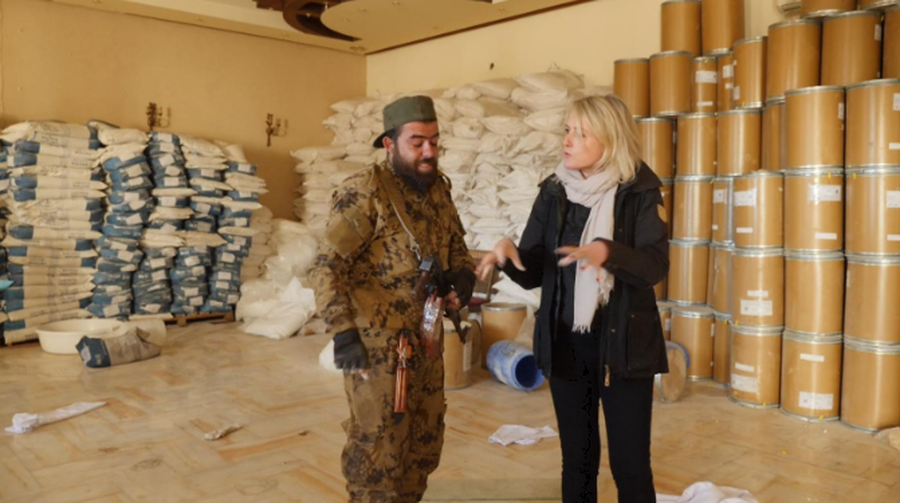
Syria's neighbors had long warned of the damaging effects on their homeland of the drug captagon the country trafficked. Many of the Assad regime's drug lords were under US, EU and UK sanctions.
According to foreign media, now that Bashar al Assad is gone, there is so much to see and film in Syria that was impossible to document before.
For example, the extent of the regime's involvement in the trade in captagon, an amphetamine-like drug that flowed out of Syria and into the Middle East, was widely known but impossible to film.
Now Syria's new leadership, Hayat Tahrir al Sham (HTS), has taken over villas and factories belonging to the country's drug lords and is more than happy to tell reporters how captagon was produced and by whom.
Sky News visited two sites, one at a private villa near the Lebanese border and another, a captagon factory in a suburb outside Damascus. What hits first is the smell. It is strong.
Guards at the villa, which looks like a scene set for Breaking Bad, say it gives them headaches. They burned the amount of captagon pills they found, but kept the raw materials - casks of caffeine, bags piled with what looked a bit like flour and alcohol. They say they have been advised that it may be useful for medicine.
"In Idlib, as you know, we were separated," says Abu Baker, an HTS soldier who is happy to show me around. "Anyone who engaged in such activities would be expelled from the city," he added.
"But of course we knew what was happening in the rest of Syria and with the regime. The regime was destroyed. The economy was dead. So they were financed with drug money," he added.
The villas in this neighborhood belonged to officers of Syria's 4th Armored Division, which was commanded by Assad's infamous brother Maher. The place Sky News went to was owned by a man HTS guards call Colonel Baseem.
"Baseem was the big boy here in this area and he instilled fear in everyone who lived here, everything was out of bounds," says Abu Bilal, a farmer who lives next door.
He had been ordered to leave his home when the construction of the villa began, and he had only dared to return when the regime fell. "I was honestly shocked when I found out about the drugs here, about these terrible operations that were destroying the country. We didn't know anything about these drugs."
Syria's neighbors had long warned of the harmful effects on their land of origin of the captagon that Syria trafficked.
According to the World Bank, drugs were the most valuable sector of war-torn Syria's economy, worth between $1.9bn (£1.5bn) and $5.6bn (£4.4bn), with US-estimated Syrian GDP no a much higher $6.2bn (£4.9bn) in 2023. (A2 Televizion)











